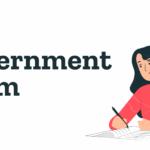
Skills Outside the Curriculum
Academic knowledge might earn you qualifications, but it’s the skills you develop beyond the classroom that often shape your success. Employers and communities alike value abilities that can’t always be measured by exams—skills like communication, adaptability, and problem-solving. These are the qualities that help you figure out real-world challenges and stand out in competitive environments.
You might not find these skills listed on a syllabus, but they’re essential for thriving in today’s fast-paced world. Whether it’s learning how to manage your time effectively or building emotional intelligence, these competencies bridge the gap between theory and practice. Investing in them doesn’t just enhance your career prospects—it enriches your personal growth too.
Importance Of Skills Outside The Curriculum
Think about how often you rely on traits like critical thinking or teamwork. These are skills that go far beyond textbooks. While academic achievements might open doors, your ability to solve problems, adapt to change, or communicate clearly will keep those doors open. Employers often look for qualities that set you apart from others with similar qualifications. Could you confidently say your skills make you stand out?
You might notice that emotional intelligence plays a significant role in dealing with others. For instance, resolving conflicts or understanding unspoken concerns can shape how others respond to you. These skills don’t develop overnight, but building them gradually can enhance your personal and professional relationships. Are you practising this in your daily interactions?
Time management can also be extremely useful. How do you handle deadlines or juggle multiple responsibilities? Learning to prioritise tasks allows you to maintain control, even when things feel overwhelming. This skill applies everywhere, from workplaces to social commitments.
You might underestimate the effect of networking. The ability to connect with diverse people could open up unexpected opportunities. Consider how you interact at events or even online—does it leave a lasting impression? Building genuine connections sometimes leads to life-changing collaborations.
Creativity should not be overlooked. How often do you approach challenges with an inventive mindset? Whether you’re brainstorming ideas or finding shortcuts, creativity drives innovation. Combining this with critical thinking prepares you for complex, unpredictable situations.
Resilience is another unsung skill. How do you respond when plans fall through? Overcoming setbacks and staying focused on your goals builds character. Employers value it because bouncing back shows persistence and drive.
Having these off-curriculum skills shapes your choices, behaviours, and outcomes. Are you actively developing them, or are they an afterthought in your personal growth journey?
Essential Communication Skills
Sharpening your communication skills can propel your personal and professional interactions. It involves more than talking—it’s about engaging, understanding, and delivering with purpose.
Public Speaking And Presentation
Speaking in front of others might seem daunting at first. You can refine this skill by organising your thoughts before you start. What message are you trying to deliver? Knowing your audience can shape your approach. Tone, clarity, and confidence all affect delivery. Practise often, whether it’s a formal presentation or a small group setting. Pacing yourself instead of rushing allows your points to land. Think of visuals or stories—they make your message stand out. As your confidence grows, your ability to capture attention improves too.
Active Listening
Listening goes beyond hearing words. It’s about focusing fully on the person speaking to you. Maintaining eye contact, nodding when appropriate, or even echoing a point shows that you care about what’s being said. Remove distractions, as divided attention weakens your connection. Silence isn’t just absence; it allows room for reflection and response. Reflecting back or asking a clarifying question like, “What did you mean by that?” not only deepens understanding but strengthens relationships as well. Active listening builds trust and ensures you don’t miss what matters most in a conversation.
Effective Writing
Your writing skills influence how others perceive your professionalism. Clear, concise messaging avoids misunderstandings. Use simple words wherever possible—complex vocabulary might confuse readers. Organise your ideas first; unstructured writing loses momentum quickly. Who’s your audience? Tailoring your tone helps connect better. Whether it’s email, reports, or social media, maintaining accuracy and proofreading for errors count significantly. Brevity often carries more weight than verbosity. Polished writing leaves lasting impacts, influencing decisions or perspectives effectively.
Personal Development Skills
Personal development skills equip you to manage challenges, make informed decisions, and grow meaningfully. These competencies often reveal their value in unexpected moments.
Adaptability And Resilience
Adapting to unexpected changes broadens your problem-solving capacity. Resilience, on the other hand, secures your peace when setbacks arise. You might find opportunities within disruptions if you learn both. Adapting involves staying flexible, but true mastery comes when you respond without hesitation. Resilience isn’t passivity. Think of it as strong roots in changing weather. Together, these skills form your toolkit for ambiguity, helping when projects shift or when life diverges from its script. Reflect—how do you approach change now?
Emotional Intelligence
Emotional intelligence sharpens your interpersonal awareness. Tuning into emotions, both yours and others’, strengthens your decision-making and relationships. Recognising triggers builds patience during conflict, while empathy paves smoother paths during discussions. Every connection you form improves when you sense unspoken concerns. It might seem subtle, but expressions, tones, and pauses tell stories. Actively improving this skill builds trust in professional teams and personal connections. Ask yourself—do your reactions reflect understanding, or merely impulse?
Critical Thinking
Critical thinking challenges assumptions and evaluates choices objectively. Facing complex issues, you analyse instead of reacting impulsively. Questions drive this process—what’s true, relevant, misleading? Dissecting details sharpens solutions, making your conclusions measured and not rushed. Whether you’re solving workplace hurdles or mapping long-term goals, this clarity distinguishes your decisions. Engage with your surroundings—how often do you question what’s presented versus simply accepting?
First Aid Training
A first aid course and the training involved turns any unexpected pressure into decisive action. Preparedness transforms emergencies into solvable events. Learning CPR, wound dressing, or recognising injury symptoms keeps you alert and oriented during crises. Offering aid, even during uncertainty, brings composure not only for others but for yourself amidst tense atmospheres. Every skill gained in training shapes a readiness that echoes beyond emergencies. Would you know how to help right now if the need arose?
Practical Life Skills
Practical life skills equip you to handle daily tasks efficiently and confidently. These essential abilities bridge the gap between academic knowledge and real-world applications.
Time Management
Time sneaks away when left unmonitored, doesn’t it? Managing your hours effectively strengthens not just your productivity but also your peace of mind. Prioritise tasks by importance and allocate fixed blocks for specific activities. Resist distractions—they love stealing time. Tools like calendars and timers can help you track your progress and meet deadlines without stress. And rest? It’s just as crucial for ensuring balance in your schedule. Remember, when you organise your time, you organise your opportunities too.
Financial Literacy
Money matters, but how do you handle it sensibly? Understanding budgets, savings, and investments helps you avoid financial pitfalls. Create a budget by listing your income and expenses—always reserve a portion for savings. Learn to differentiate between needs and wants to prevent impulsive purchases. Explore concepts like interest rates and loans to make informed choices about borrowing. Small financial decisions today shape your long-term security. Being financially literate means safeguarding your future stability.
Problem-Solving
Challenges have a knack for arriving uninvited, don’t they? Tackling them begins with viewing every problem as an opportunity to improvise. Identify the issue clearly; vague problems lead to vague solutions. Break down complexities into smaller, manageable parts and explore multiple approaches. Analytical thinking uncovers hidden patterns, helping you resolve conflicts creatively. As you tackle more obstacles, your ability to think critically and act confidently grows stronger. Problem-solving transforms uncertainty into empowerment.
Social And Networking Skills
Social and networking skills shape how you connect with others in personal and professional spaces. These abilities not only foster relationships but also open doors to opportunities that may otherwise go unnoticed.
Team Collaboration
When working with a group, your ability to effectively collaborate decides the success of shared goals. Understanding roles, exchanging ideas, and respecting diverse perspectives enhance teamwork. Listen carefully during discussions to grasp nuances, as team dynamics evolve with input from everyone. Contributing your strengths while encouraging others builds trust and synergy. Teams thrive not by uniformity but by the balance of abilities aligned for a purpose. Take time to adapt your approach to varying team environments.
Building Professional Relationships
Developing meaningful professional relationships depends on mutual respect and genuine engagement. Your approach matters—be approachable yet purposeful in dialogues. Networking isn’t just meeting people; it’s maintaining connections through shared interests or consistent value. Follow-up conversations or small gestures can leave lasting impressions. Asking questions that show interest or identifying common goals deepens interactions. Effective relationships grow when you prioritise authenticity over superficial exchanges, ensuring your network remains trustworthy and impactful.
Final Thoughts
Developing skills beyond the traditional curriculum equips you with the tools needed to figure out life’s complexities and seize opportunities with confidence. These abilities not only enhance your professional prospects but also enrich your personal growth and resilience.
By investing time in mastering these competencies, you prepare yourself to adapt, connect, and thrive in an ever-changing world. The effort you put into cultivating these skills will undoubtedly shape your journey and open doors to a more fulfilling and successful future.







